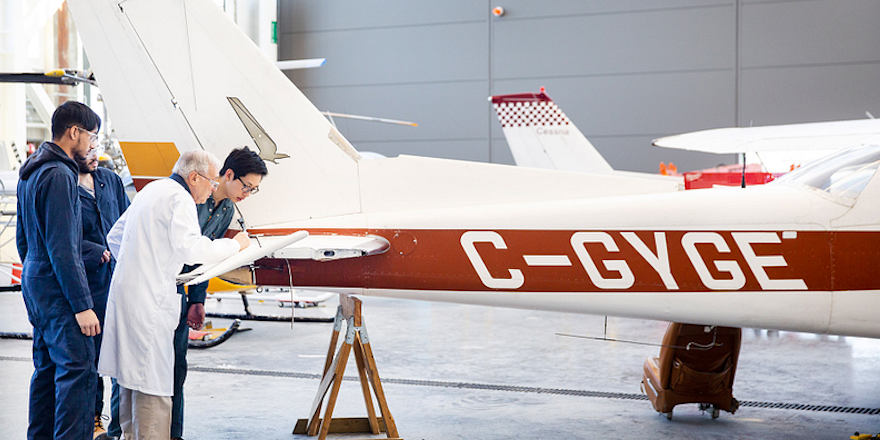Four Reasons Why Practical Experience at Centennial is Your Key to Success
Discover what practical experience at Centennial College actually means.

If you're thinking about enrolling at Centennial College, and have been doing your research, you’ve probably read a lot about "practical experience," "real-life learning," or "hands-on learning." We make a big deal out of it because it's not just a buzzword. Experiential learning is something Centennial College specializes in — it was one of our founding principles when we opened in 1966.
Here’s four reasons why it's important to your education and your career, so you can understand why we keep talking about it.
1. Learning by doing is always better
Whatever the job, the theme at college is teaching "how to do." Instead of reading about it, you'll roll up your sleeves and actually do the thing you want to do.
To use a simple example, when you're getting your driver's licence in Ontario, there's a book you can read that will teach you the rules of the road, what all the street signs mean, and how to safely operate a car. You can read that book cover-to-cover, but when it's time to take your test, if you haven't spent any time behind the wheel, you're not going to get your licence. Practical experience happens when you actually sit behind the wheel, start the engine, and put your book learning into practice.
It's one thing to read about it and another thing to do it. That's what happens at college. We put you behind the wheel. If you’re a nurse, you're working in our nursing labs on simulated patients. If you're in aircraft maintenance, we have airplanes and helicopters on campus you can work on. If you write or make art, you'll be writing or creating your art in our studios. If you’re in the culinary arts, we’ve got a whole array of professional kitchens to learn in. And the list goes on.
2. It means you have something to show employers
It's not just important that you have the skills for your career, it's also essential that you can prove to employers that you possess those skills. That's why a portfolio is important. It's evidence of your skills. If you're a writer or artist, then a portfolio consists of what you've written and created while you're at college, the best examples of what you've been doing.
But a portfolio isn't just limited to the creative fields, like writing, design, animation, or arts. Any major project you take part in at college can be documented, from the car you successfully repaired, to your performance as a nurse in our mock disaster exercise. To use the driving metaphor, it's like driving with a dashcam — which provides hard evidence that you can do the things you say you can.
3. You’ve spent time in your career, and you can put that on your resumé
Anyone that's spent time job-hunting knows that a lot of professions want you to have a certain amount of experience, usually measured in years. Since the practical experience you get in college has you actually doing career-related assignments, you can count it towards those years of experience.
For example, if you're in Centennial’s Journalism program, you're producing content for the East Toronto Observer news website or On the Danforth magazine. A year spent in the program working on these is a year of journalism experience you can put on your resumé. Pretty much any hands-on program in college can be recorded on your resumé this way.
4. It can provide you with a direct connection to your next job
A lot of Centennial College programs have co-op and placement opportunities that spin out of that "practical experience" factor, where you can test-drive your career in a genuine workplace setting you'll eventually want to be employed at.
Essentially, you learn those hands-on skills in school, and then move to the real world to practice them as part of your work placement. Even if you don’t end up being hired there after graduation, you’ve had the opportunity to see the environment you could be working in, and you can make the professional connections that will start you on the next phase of your career.
Discover your future at Centennial College